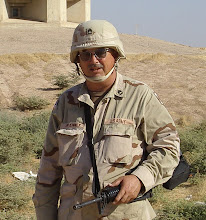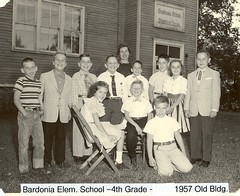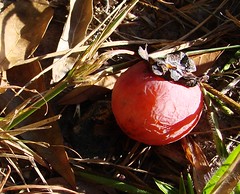 Image via Wikipedia
Image via Wikipedia
I've never been to any of those places though I have lived in a number of places in the northern half of the Western Hemisphere. I think though that a lot of my sense of adventure or "adventure quotient" came from those readings. I once read that people like me love to look at old maps and in particular those maps which have the caption "There be Dragons" on the very edge of the world. I've done some interesting jobs too and will talk about them later when I get this period of my youth completed.
Few have placed their hand on the key used to release megatons of nuclear weapons. Fewer still have programmed the delivery vehicles for them. And I'm willing to be serious money that I am the only one who having done this was also a foot soldier in Iraq! Life with the dragons has helped me feel significant and shown me the world, but now, with those days complete I still seek the lost horizon...

![Reblog this post [with Zemanta]](http://img.zemanta.com/reblog_e.png?x-id=783d5a71-0539-49b8-a0b9-e7562ac99fff)

![Reblog this post [with Zemanta]](http://img.zemanta.com/reblog_e.png?x-id=a6682ab8-41f4-4f9b-ab2b-1e8cdd84c29f)

![Reblog this post [with Zemanta]](http://img.zemanta.com/reblog_e.png?x-id=13a690f1-3309-481d-900d-86c648c70d82)

![Reblog this post [with Zemanta]](http://img.zemanta.com/reblog_e.png?x-id=fd3ee1fc-09d3-4414-b728-3e640a4f2ed3)

![Reblog this post [with Zemanta]](http://img.zemanta.com/reblog_e.png?x-id=55a347a0-30e5-440a-98e8-190a9a88714e)

![Reblog this post [with Zemanta]](http://img.zemanta.com/reblog_e.png?x-id=6a6f82e4-92bc-4e56-954a-f5f2d4bcc220)

![Reblog this post [with Zemanta]](http://img.zemanta.com/reblog_e.png?x-id=bd968b73-1162-46e9-a2c4-645b0b55ffbf)

![Reblog this post [with Zemanta]](http://img.zemanta.com/reblog_e.png?x-id=ca65c2fa-f3a3-4ce5-bf8c-1198933a0265)

![Reblog this post [with Zemanta]](http://img.zemanta.com/reblog_e.png?x-id=61de76af-ddcd-4192-b7e5-e3aa34a7173f)

![Reblog this post [with Zemanta]](http://img.zemanta.com/reblog_e.png?x-id=128c349b-4fdc-4c06-b2c6-9a6cda5e9432)

![Reblog this post [with Zemanta]](http://img.zemanta.com/reblog_e.png?x-id=da5ab848-2b2a-4e86-b7d3-a0145a0999a9)

![Reblog this post [with Zemanta]](http://img.zemanta.com/reblog_e.png?x-id=ea860124-09a0-4c8e-9c1a-9f1c8f407c61)

![Reblog this post [with Zemanta]](http://img.zemanta.com/reblog_e.png?x-id=1bd77132-beff-4e88-8293-82287cc0d00e)

![Reblog this post [with Zemanta]](http://img.zemanta.com/reblog_e.png?x-id=babf558c-a1e9-4afb-ae3c-374675199c4f)

![Reblog this post [with Zemanta]](http://img.zemanta.com/reblog_e.png?x-id=941027a5-9f0d-428d-946a-aa322cfed97e)

![Reblog this post [with Zemanta]](http://img.zemanta.com/reblog_e.png?x-id=dd68c2ef-c3ab-4933-a753-3a47dfc78fb9)